July in Tuscany and the heat is intense. Oak-forested hills offer tempting shade; pale dust flies from the roads; in the houses curtains are drawn against the ferocious sun and around irrigated gardens the mosquitos are growing plump. If you love Italian sunshine, food, wine and chamber music, this is your ideal festival, as long as you pack some citronella. Its name: Incontri in Terra di Siena.
The background to the event is both unusual and inspiring. In the 1920s the writer Iris Origo and her husband Antonio set up home in a sprawling villa, La Foce, overlooking the Val d’Orcia (pictured below) – which was regarded at the time as a barren “moonscape”. The couple set about improving matters for the local workers; and during World War II they sheltered refugee children at the house as well as aiding escaped allied prisoners-of-war. Origo’s war diaries are now literary classics. 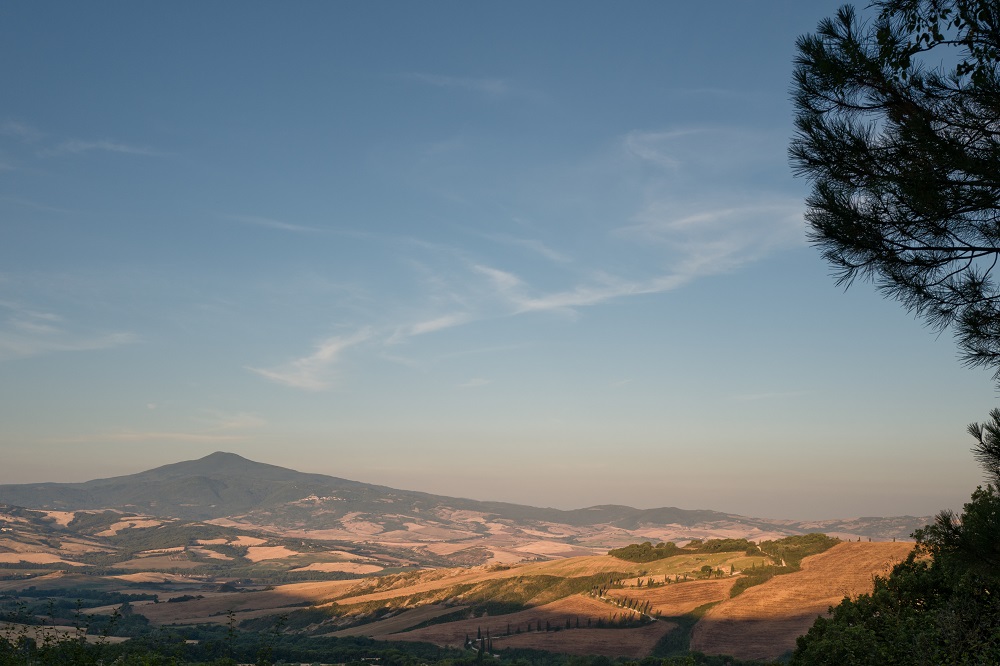 Later the Origos’ daughter Benedetta married the violinist Alberto Lysy, and 31 years ago their son, the cellist Antonio Lysy, set up Incontri (Encounters): a festival bringing exceptional musicians to work and perform in the environs of this celebrated family estate, its gardens filled with lavender and lemon trees.
Later the Origos’ daughter Benedetta married the violinist Alberto Lysy, and 31 years ago their son, the cellist Antonio Lysy, set up Incontri (Encounters): a festival bringing exceptional musicians to work and perform in the environs of this celebrated family estate, its gardens filled with lavender and lemon trees.
Today Lysy describes himself as the festival’s “godfather”. Over the years he has drafted in a succession of artistic directors; the current incumbent is the Italian pianist Alessio Bax, who has a number of secret weapons at his fingertips. One is a pleasing breadth of musical interests: this year’s seven concerts extend from Bach and Mercadante to Jolivet and a jazz adaptation of Pulcinella. Also handy, though, is Bax’s passion for fine food: a festival artistic director must keep the resident artists well fed, and Incontri excels at locating splendiferous local cuisine. Each concert takes place in a different venue within a half-hour drive of La Foce; often concert-goers can enjoy a pre-concert tour of the relevant town's historical features. 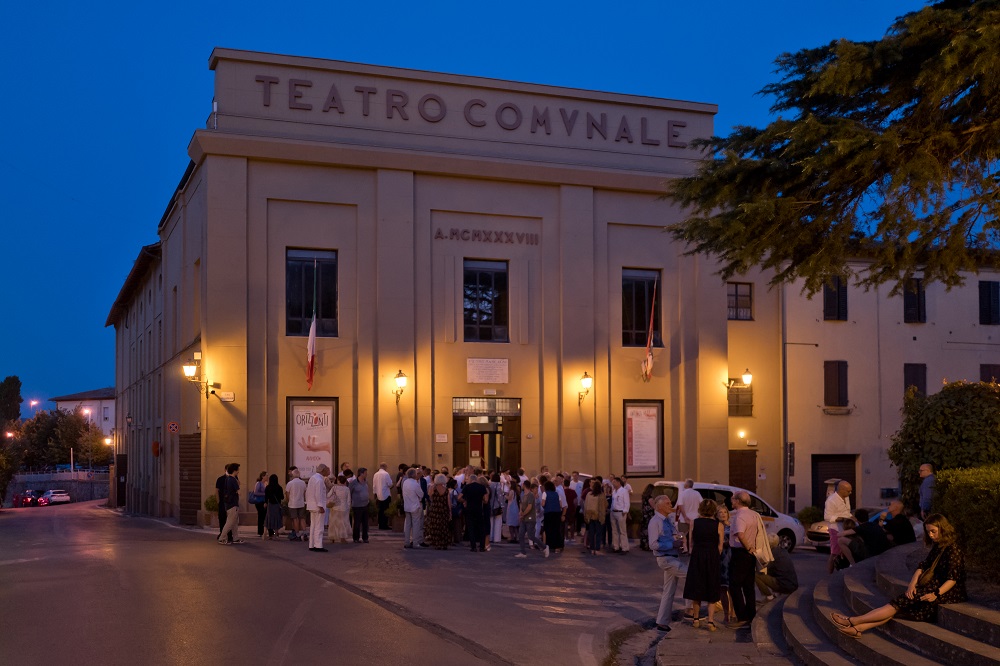 First night on 21 July was at Chiusi’s Teatro Communale Pietro Mascagni (pictured above), a small Mussolini-era opera house with tiered boxes and a bright, pleasing acoustic. The local string orchestra, Camerata Strumentale "Città di Prato" with its British conductor, Jonathan Webb, presented a sympathetic and warm-hearted opener of Britten’s Simple Symphony; they then accompanied some of the resident stars in two little-known concertos and an orchestral version of Weber’s Clarinet Quintet.
First night on 21 July was at Chiusi’s Teatro Communale Pietro Mascagni (pictured above), a small Mussolini-era opera house with tiered boxes and a bright, pleasing acoustic. The local string orchestra, Camerata Strumentale "Città di Prato" with its British conductor, Jonathan Webb, presented a sympathetic and warm-hearted opener of Britten’s Simple Symphony; they then accompanied some of the resident stars in two little-known concertos and an orchestral version of Weber’s Clarinet Quintet.
Daishin Kashimoto, a concertmaster of the Berlin Philharmonic, proved a full-blooded soloist in Mendelssohn’s D minor Violin Concerto (pictured below) - a rare piece much associated with Alberto Lysy. Emmanuel Pahud delivered Mercadante’s rather delicious Flute Concerto in E minor Op.57 with suitably bel canto phrasing and a wealth of attitude, and finally Paul Meyer played the Weber at greyhound-race tempo. In this anything-you-can-play-I-can-play-faster line-up, one almost expected prizes to be awarded at the end. Superb as all of them were, I can’t help wondering if perhaps some actual female soloists might provide a more varied and nuanced energy to offset all that testosterone. 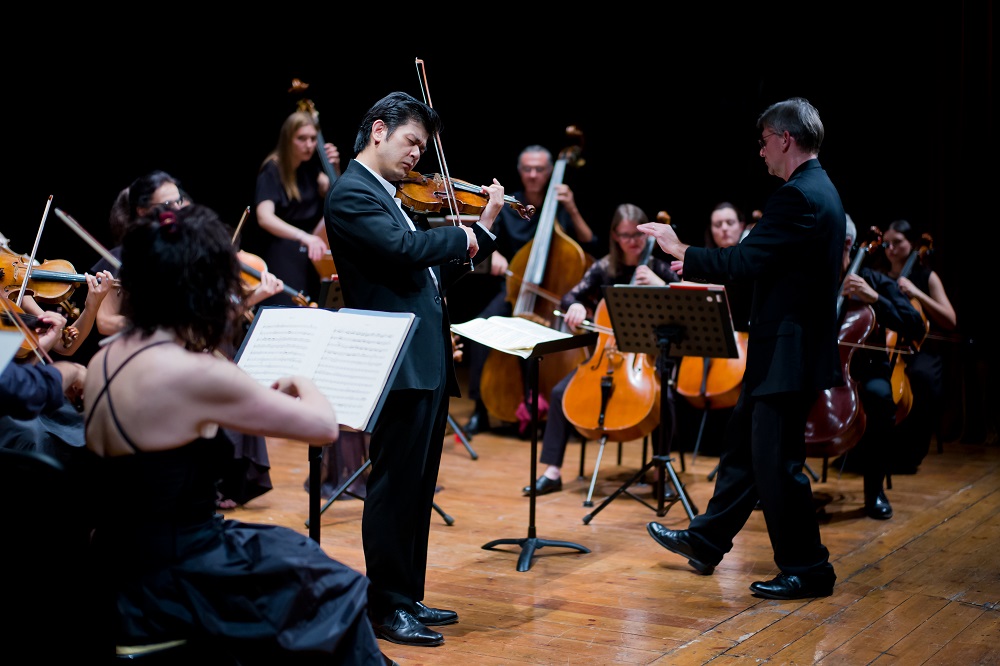 The same performers reconvened the next evening, with the pianist Eric Le Sage, this time in the restored 16th-century Chiesa del Triano of Montefollonico, poised on a hillside with views towards Montepulciano. A mark of a fine festival is that it can programme anything and the audience will still trust it to deliver. It says much for Incontri that there was a full house on a singularly steamy evening for a concert stuffed with 20th-century rarities.
The same performers reconvened the next evening, with the pianist Eric Le Sage, this time in the restored 16th-century Chiesa del Triano of Montefollonico, poised on a hillside with views towards Montepulciano. A mark of a fine festival is that it can programme anything and the audience will still trust it to deliver. It says much for Incontri that there was a full house on a singularly steamy evening for a concert stuffed with 20th-century rarities.
In various combinations the four musicians tackled works by Dutilleux, Jolivet, Stravinsky, Poulenc, Saint-Saëns and Rota, offering the nonchalantly outstanding music-making of long-established friends and colleagues meeting in a fresh environment. Highlights included Dutilleux’s Sonatine for Flute and Piano of 1942, a concise masterpiece; a super-cool account of the Poulenc Clarinet Sonata; and the Nino Rota Trio for Violin, Flute and Piano (1958), an intense, driven, strong-willed sort of work with a performance to match. Rota was a prolific composer of opera and concert works, yet has been oddly sidelined – probably because he wrote film scores… even though those (some 150 of them) included La strada, La dolce vita and, excuse me, The Godfather. It’s high time we heard more of him beyond the silver screen. 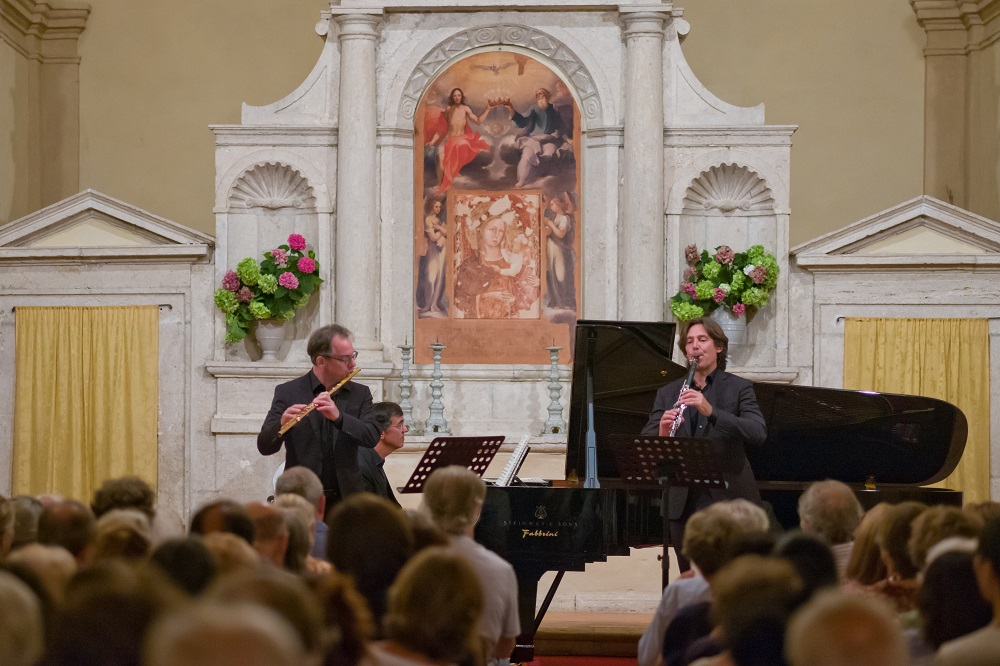 Still, the abiding impression was Saint-Saëns’s Tarantelle Op.6, which Pahud, Meyer and Le Sage (pictured above) offered as a twinkle-toed display of musical gymnastics, topped off with inspired impromptu glissandi from the pianist. Le Sage was, indeed, the real hero of the evening: a supremely sensitive chamber music partner, with a luminous, limpid keyboard touch.
Still, the abiding impression was Saint-Saëns’s Tarantelle Op.6, which Pahud, Meyer and Le Sage (pictured above) offered as a twinkle-toed display of musical gymnastics, topped off with inspired impromptu glissandi from the pianist. Le Sage was, indeed, the real hero of the evening: a supremely sensitive chamber music partner, with a luminous, limpid keyboard touch.
The Piazzale del Granaio di Belvedere, Castelluccio, housed evening number three, this time in the open air: a broad courtyard with a castle, lavish Mediterranean gardens and more grand views over the valley from above the La Foce estate. The French-American jazz pianist Dan Tepfer has already made waves with his adaptation of Bach’s Goldberg Variations (which he played several years ago at the Wigmore Hall, among other venues). Now he has created a still more surprising project: Pulcinella Revisited, drawing on both Stravinsky and his ballet’s 18th-century origins. This was only its second performance. 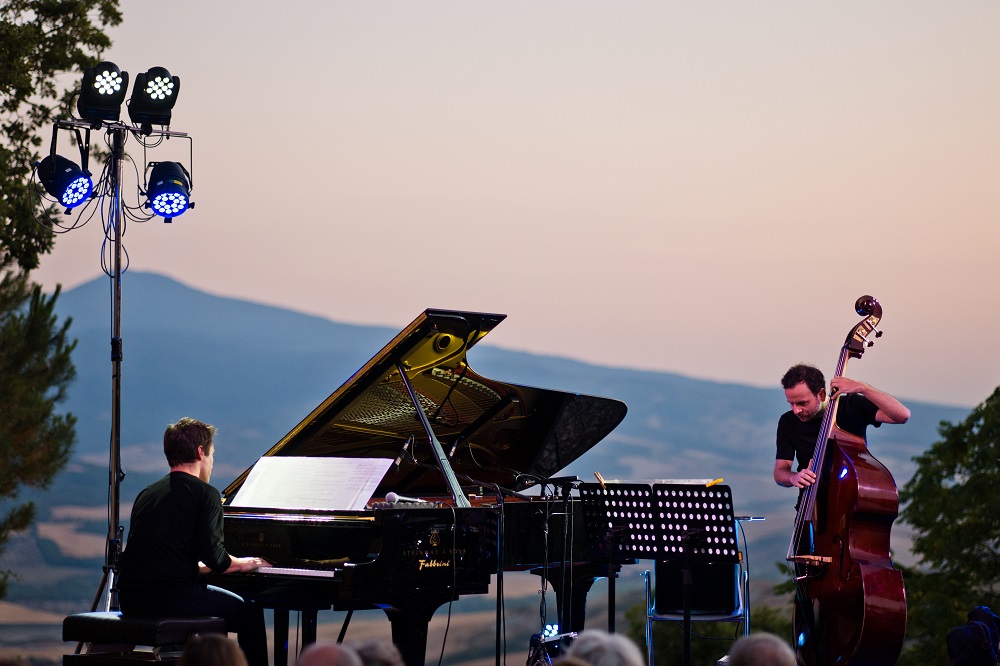 Tepfer has transformed the score in its centenary year with inspired originality and lightness of touch. Stravinsky’s ever so slightly annoying neoclassicism is effectively superseded by forensic disassembly and recomposition as Tepfer picks out motifs to toy with, turning them into improvisatory building blocks garlanded with subtle and imaginative harmonies. The light-footed baroque spirit glitters; the slidey trombone number becomes a delicate solo piece for double bass (beautifully played by the Polish bassist Michał Baránski, pictured above with Tepfer); there are lavish solos for drummer Nate Wood; and the Serenata is yearning and seductive in the Tuscan sunset.
Tepfer has transformed the score in its centenary year with inspired originality and lightness of touch. Stravinsky’s ever so slightly annoying neoclassicism is effectively superseded by forensic disassembly and recomposition as Tepfer picks out motifs to toy with, turning them into improvisatory building blocks garlanded with subtle and imaginative harmonies. The light-footed baroque spirit glitters; the slidey trombone number becomes a delicate solo piece for double bass (beautifully played by the Polish bassist Michał Baránski, pictured above with Tepfer); there are lavish solos for drummer Nate Wood; and the Serenata is yearning and seductive in the Tuscan sunset.
Tracing the continuity of centuries through both the music and its surroundings - perhaps exemplified by the Tepfer Trio’s Pulcinella - this festival matches macrocosm with microcosm. Allora, if you can get there next year, do go.

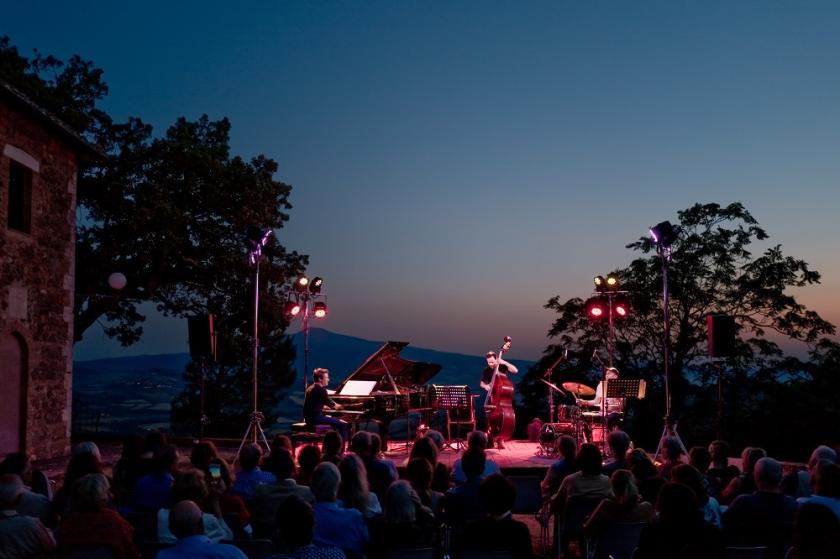












Add comment